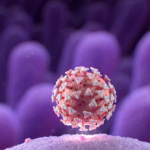As of today, Jan. 2, Nova Scotia has 27 active cases of COVID-19. Thirteen new cases are being reported from Jan. 1 and today, Jan. 2.
On Jan. 1, 11 cases were reported: 10 in Central Zone and one in Northern Zone. In Central Zone, eight are close contacts of previously reported cases and two are linked to travel outside Atlantic Canada. The Northern Zone case is linked to travel outside Atlantic Canada.
On Jan. 2, two cases were reported: one in Central Zone linked to travel outside Atlantic Canada and one in Northern Zone that is under investigation.
Five of the cases reported on Jan. 1 are at Churchill Academy, a private school in Dartmouth. There were two other recent cases at the school, for a total of seven. Public health has been in contact with the school community and is arranging testing for all staff and students. The last day of school was Dec. 18 and classes are scheduled to resume Jan. 11.
“This is another reminder of how COVID-19 leaps at any chance to spread,” said Premier Stephen McNeil. “We are wrapping our arms around this school community and providing the testing and support necessary. As we start this new year, let’s remember to be vigilant about following public health protocols, and don’t forget the importance of being kind.”
The number of tests done by the Nova Scotia Health Authority’s labs is not available today. It will be updated on Jan. 4.
Since Oct. 1, there have been 410 positive COVID-19 cases and no deaths. One person is currently in hospital. Cases range in age from under 10 to over 70. Three hundred and eighty-two cases are now resolved. Cumulative cases may change as data is updated in Panorama.
“The first few days of 2021 show that we can’t let our guard down when it comes to COVID-19,” said Dr. Robert Strang, chief medical officer of health. “Follow the public health measures diligently, monitor your health closely and stay home if you feel ill, follow the gathering limit and get a test at a pop-up site or at a public assessment centre.”
Restaurants and licensed establishments in areas of Halifax Regional Municipality and Hants County can reopen for dine-in service starting Jan. 4. They must follow the provincewide restrictions, including ending service by 10 p.m. and closing by 11 p.m. They can continue takeout and delivery service with no restrictions. The Halifax casino and VLTs remain closed.
Public health guidance for holidays and celebrations can be found at https://novascotia.ca/protect-yourself-and-others-from-coronavirus/holidays/ .
Visit https://covid-self-assessment.novascotia.ca/ to do a self-assessment if in the past 48 hours you have had or you are currently experiencing:
— fever (i.e. chills/sweats) or cough (new or worsening)
Or:
Two or more of the following symptoms (new or worsening):
— sore throat
— runny nose/nasal congestion
— headache
— shortness of breath/difficulty breathing
Call 811 if you cannot access the online self-assessment or wish to speak with a nurse about your symptoms.
When a new case of COVID-19 is confirmed, the person is directed to self-isolate at home, away from the public, for 14 days. Public health works to identify and test people who may have come in close contact with that person.
Anyone who has travelled outside of Atlantic Canada must self-isolate for 14 days. As always, anyone who develops symptoms of acute respiratory illness should limit their contact with others until they feel better.
It remains important for Nova Scotians to strictly adhere to the public health order and directives – practise good hand washing and other hygiene steps, maintain a physical distance when and where required. Wearing a non-medical mask is mandatory in most indoor public places.
The premiers of all four Atlantic provinces are cautioning against non-essential travel into neighbouring provinces. Currently, all non-essential travel into Prince Edward Island, New Brunswick and Newfoundland and Labrador requires a 14-day self-isolation. All public health directives of each province must be followed. Under Nova Scotia’s Health Protection Act order, visitors from outside Atlantic Canada must self-isolate for 14 days unless they completed their self-isolation in another Atlantic province.
Nova Scotians can find accurate, up-to-date information, handwashing posters and fact sheets at https://novascotia.ca/coronavirus .
Businesses and other organizations can find information to help them safely reopen and operate at https://novascotia.ca/reopening-nova-scotia .
Quick Facts:
— testing numbers are updated daily at https://novascotia.ca/coronavirus
— a state of emergency was declared under the Emergency Management Act on March 22, 2020 and extended to Jan. 10, 2021
— online booking for COVID-19 testing appointments is available at https://covid-self-assessment.novascotia.ca/
Additional Resources:
Government of Canada: https://canada.ca/coronavirus
Government of Canada information line 1-833-784-4397 (toll-free)
The Mental Health Provincial Crisis Line is available 24/7 to anyone experiencing a mental health or addictions crisis, or someone concerned about them, by calling 1-888-429-8167 (toll-free)
If you need help with a non-crisis mental health or addiction concern call Community Mental Health and Addictions at 1-855-922-1122 (toll-free) weekdays 8:30 a.m. to 4:30 p.m.
Kids Help Phone is available 24/7 by calling 1-800-668-6868 (toll-free)
For help or information about domestic violence 24/7, call 1-855-225-0220 (toll-free)
For more information about COVID-19 testing and online booking, visit https://novascotia.ca/coronavirus/symptoms-and-testing/



